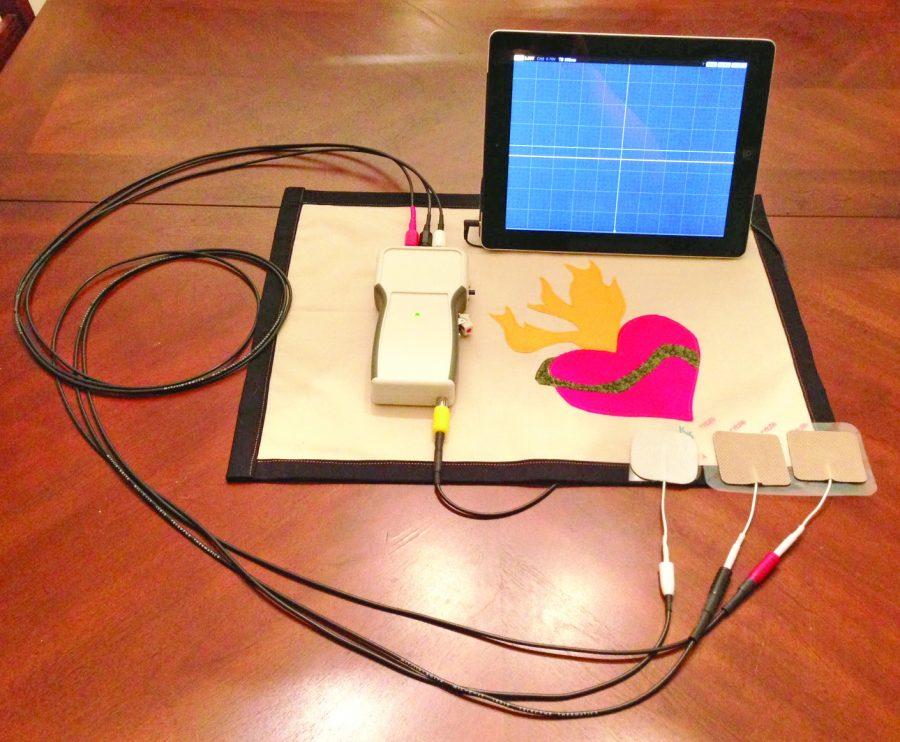“Rehab is very monotonous,” he said. “It’s a real struggle to go in everyday and push yourself to get better. We wanted to make the process visible so that you can see yourself making progress or not making progress.”
Hendricks heads the team behind a local, University of Alabama-affiliated start-up company, 2B Electronic, which has made it to the semi-final round of Alabama LaunchPad’s statewide competition for budding businesses. The winning team will receive a $300,000 award. Patrick LeClair, assistant professor of physics, assists Hendricks.
“In my senior year, I approached Dr. LeClair with an independent research project based on this idea I had about making the rehab process more visual and interactive,” Hendricks said. “We spent three months trying to figure out what size the device should be.”
2B Electronic’s primary concept is a device that monitors muscle activity and can be used for a variety of purposes from physical therapy to personal fitness. Partnering with the University provides funding and research facilities for the company.
In February 2013, Hendricks approached Whitney Hough in the Office of Technology Transfer, because he and LeClair believed that the technology they had been working on could have commercial applications.
“A committee of faculty representatives from biology, chemistry, engineering, computer science and business, as well as the UA legal counsel and the vice president for research, came together in a ‘Shark Tank’-like assessment of the business model and technological concepts,” Hough said.
Hough said that the OTT looks at “patentability, marketability and feasibility” when determining which inventors and start-up businesses are awarded an affiliation. 2B Electronic has a patent pending on its technology and will learn of its status in September.
Hough acts as a kind of advisor and business consultant to the team. She reviews and revises their business plans and concepts to ensure that they are adequately addressing the anticipated needs and aspects of their plan while maintaining cost efficiency and feasibility.
The team has traveled across the state, talking with physical therapists, patients and professionals to learn about the needs that are present and what features should be included to make this technology as useful as possible. Hendricks said their current focus is on the physical therapy industry, but he hopes the technology can help individuals with physical fitness by being made small enough to wear during rigorous exercise, where it can provide useful information.
Greg Sheek, Director of LaunchPad Programs, said that the goal of LaunchPad is to support Alabama-based start-up businesses. LaunchPad connects new entrepreneurs with other entrepreneurs and a network of key individuals and leaders from across the state to help them succeed.
“We attempt to make the process faster for these businesses,” Sheek said. “We try to make them bigger and more successful, whether that be getting it from the concept stage into a working prototype or getting products from being sold in only a few stores to being sold across the state or the Southeast.”
Sunday, the team submitted a business plan to the judges of the start-up competition. The judges will make comments and suggestions to the plan, and July 18 the team will travel to Birmingham to present a business proposal to the judges. The judges’ decision on their proposal will determine if they move on to the finals of the competition.









